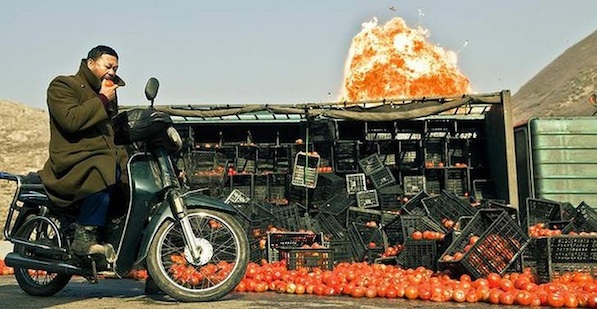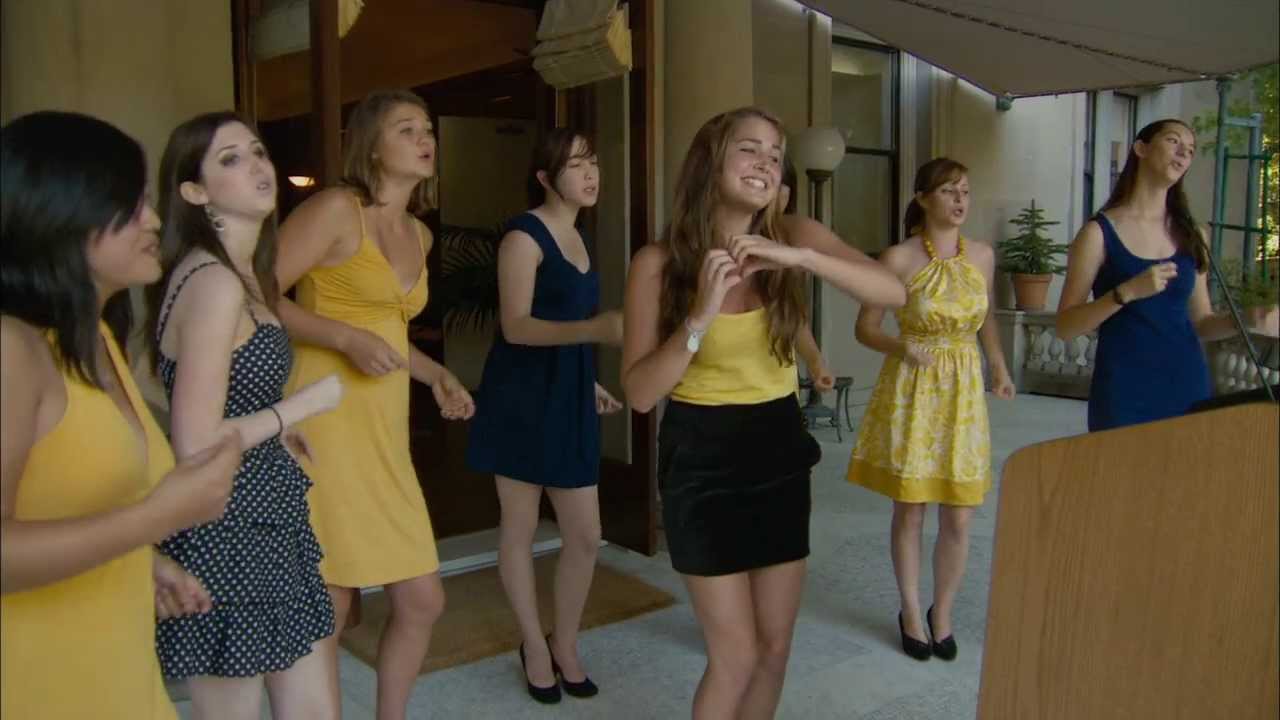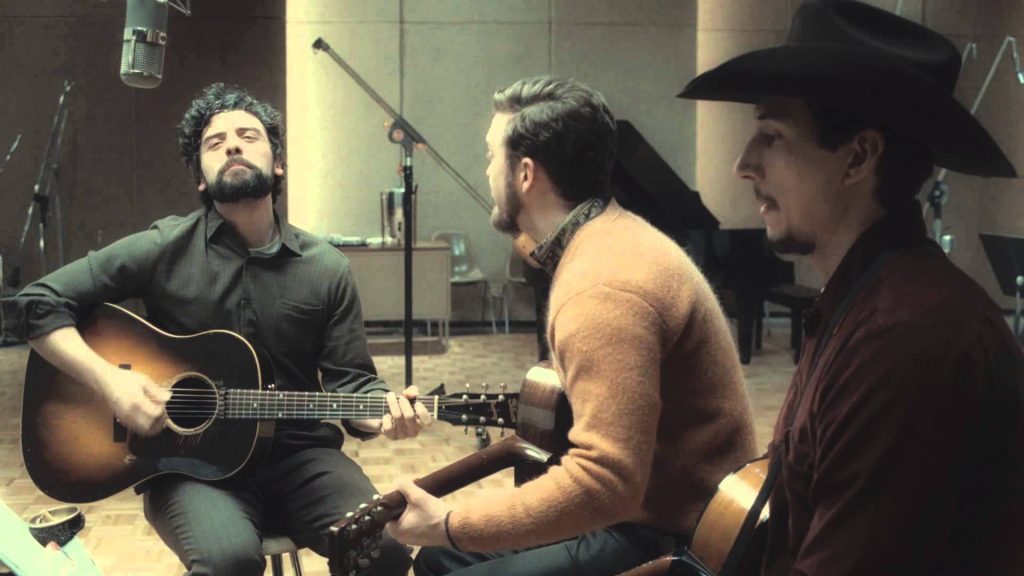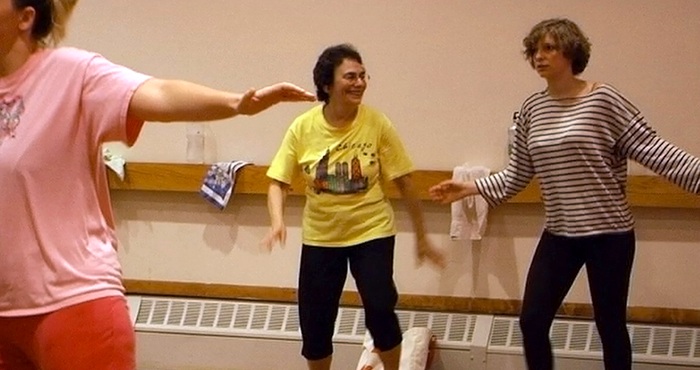It would have been easy to compile a list of the funniest moments in film in 2013, but chances are likely that most, if not all of the entries would have come from comedies. When a moment of hilarity arises in other kinds of films—unanticipated, sudden, and frequently subtle—they can feel enormously relieving in scenes where tension is high. And yet the most fundamentally important funny moments in film are not simply functional; they illustrate a greater point: a bitter, ironic truth, a grossly satirized piece of history, a welcome moment of frivolity contrasted with a sombre character. I’ll leave scenes like James Franco’s hilarious “Look at my shit!” riffing (Spring Breakers) and the many quotable lines from The World’s End to other film list-makers. Here are some of the more subtle funny moments in film in 2013.
‘Dr. Chang and Mr. Haha’ (Drug War)
Elaborate choreography and perfect timing notwithstanding, one of the key ingredients in Captain Zhang Lei’s (Sun Honglei) undercover trap is his uncanny performances as the two criminals who are supposed to meet each other, middleman Chang and distributor Haha in Johnnie To‘s Drug War. Zhang first undertakes Chang’s cool, unnerving disposition while meeting the real Haha, and then imitates Haha’s flamboyant personality with a second meet-up with the real Chang. That Zhang is able to deftly and quickly switch from playing the deadpan and grim-faced Chang to the annoying, mirthful Haha is not only a feat in detective work but one for the actor Sun himself. It’s quite hilarious to watch a character act out two contrasting personalities—this in spite of the constant threat of the criminals finding out that Zhang is a cop. A triple-threat cop at that.
‘Tomato Explosion’ (A Touch of Sin)
Early in A Touch of Sin, we see a toppled tomato truck, its contents spilling onto the road, its driver crumpled on the ground, people gathering to examine the casualty. A stopped motorist, Dahai (Wu Jiang, the first of four protagonists in this vignette-centered film) looks at the truck while casually holding a tomato. He inhales deeply before blowing dust off the fruit to take a bite, but is interrupted by an explosion behind him. The shot is startling, the explosion unexpected. And its astute timing provides a brief moment of levity in the otherwise somber film. Had the explosion gone off just as Dahai opened his mouth to take a bite, the moment would have soured into cartoon territory and been totally inappropriate for the film. Having the bomb detonate just that one second earlier makes a world of a difference: it makes the timing feel innocuous and unplanned, giving the viewer the permission to laugh at such randomness.
‘Tough Crowd’ (At Berkeley)
A particular scene in At Berkeley thoroughly demonstrates the unavoidable disconnect between student groups on campus. A cheerful singing group performs The Supremes’ “Up to the Ladder to the Roof,” and like elsewhere in the film, Wiseman invites the viewer to watch the long take with ethnographic interest. The following reverse shot, though, is sure to provoke a guffaw: the film cuts from the zestful chanteuses to a bored crowd who watch only with a polite and feigned interest (or perhaps, as is likely with campus events, they were offered free food to show up). It’s a little detail, easily overlooked, but it effortlessly demonstrates the fragmentation of varying interests and pursuits of a student population made up of so many diverse people.
‘Please Mr. Kennedy’ (Inside Llewyn Davis)
The Coens’ elegiac character study of the eponymous protagonist, a folk musician down on his luck in early 1960s Greenwich Village, bases much of its humor on tragicomic events. The film also likes to poke fun at some of the more bizarre pop trends that came out of the folk revival, and in this endeavour the Coens could not have nailed such musical absurdity better than with “Please Mr. Kennedy,” a pop ditty critical of the Space Race, slightly reminiscent of The Coasters’ “Yakety Yak.” But it’s really Al Cody’s (Adam Driver) contribution—his intermittent musical burps, like “Uh oh!” and “Outer… Space!”—that elevates the scene into comedic brilliance.
‘Zumba’ (Exit Elena)
Film editing provides endless opportunities to throw in comedic punches on the sly. When Cindy (Cindy Silver) complains about Elena’s (Kia Davis) lack of friendliness to her boss, the camera zooms in on Elena’s annoyed expression through a glass door, indicating that she can hear the conversation. “I thought maybe I would take her to a Zumba class with me,” a disappointed Cindy says as a title card with the date connects this scene to the next, a shot of the dance instructor, with an off-screen Cindy proudly introducing her mother-in-law’s aide. Clearly Elena is only doing the class because she doesn’t want any more negative performance feedback, though her lack of enthusiasm, and the extent to which Cindy tries so hard to be Elena’s friend, is beautifully depicted in the following shot, a panning long take of the dance studio. The camera begins with the instructor and then slowly moves across the room to show the devoted class of women—of all ages and dancing proficiencies—as they follow the moves. Finally the camera reaches the far back of the studio to show Cindy and a nearly immobile Elena. The expression on Cindy’s face is priceless: she’s loving Zumba, and sincerely seems to believe Elena is, too. She keeps poking at her to try harder, but Elena eventually gives up and leaves in irritation.
For the complete list of year-end lists on Keyframe, go to The Year in Film: 2013.
For the complete index of the films on these lists, go to 2013 Year in Review: Indexed.









